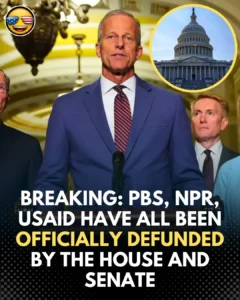
The U.S. House of Representatives has passed a historic bill to defund PBS, NPR, and USAID, marking a significant shift in federal funding priorities.
On July 17, 2025, the House voted 216–213 to approve the Rescissions Act of 2025, which also passed the Senate the day before.
The legislation rescinds approximately $9 billion in previously allocated funds, including $1.1 billion from the Corporation for Public Broadcasting, which supports NPR and PBS, and $7.9 billion from U.S. foreign aid programs like USAID.
President Donald Trump, who has long criticized public broadcasting for alleged bias and wasteful spending, celebrated the cuts as a step toward fiscal responsibility. Leaders from PBS and NPR have strongly opposed the cuts, warning that they will severely impact smaller and rural stations, particularly those that rely on federal funding for educational programming and emergency alerts.
Meanwhile, USAID, now absorbed into the State Department, has already experienced significant staff reductions and program cancellations, raising concerns about the future of global health and humanitarian efforts.
This move has sparked widespread debate over the role of public media and foreign aid, especially in a politically charged climate.
As the bill heads to President Trump’s desk for final approval, its potential effects on public broadcasting and international aid are expected to continue dominating national discussions.





